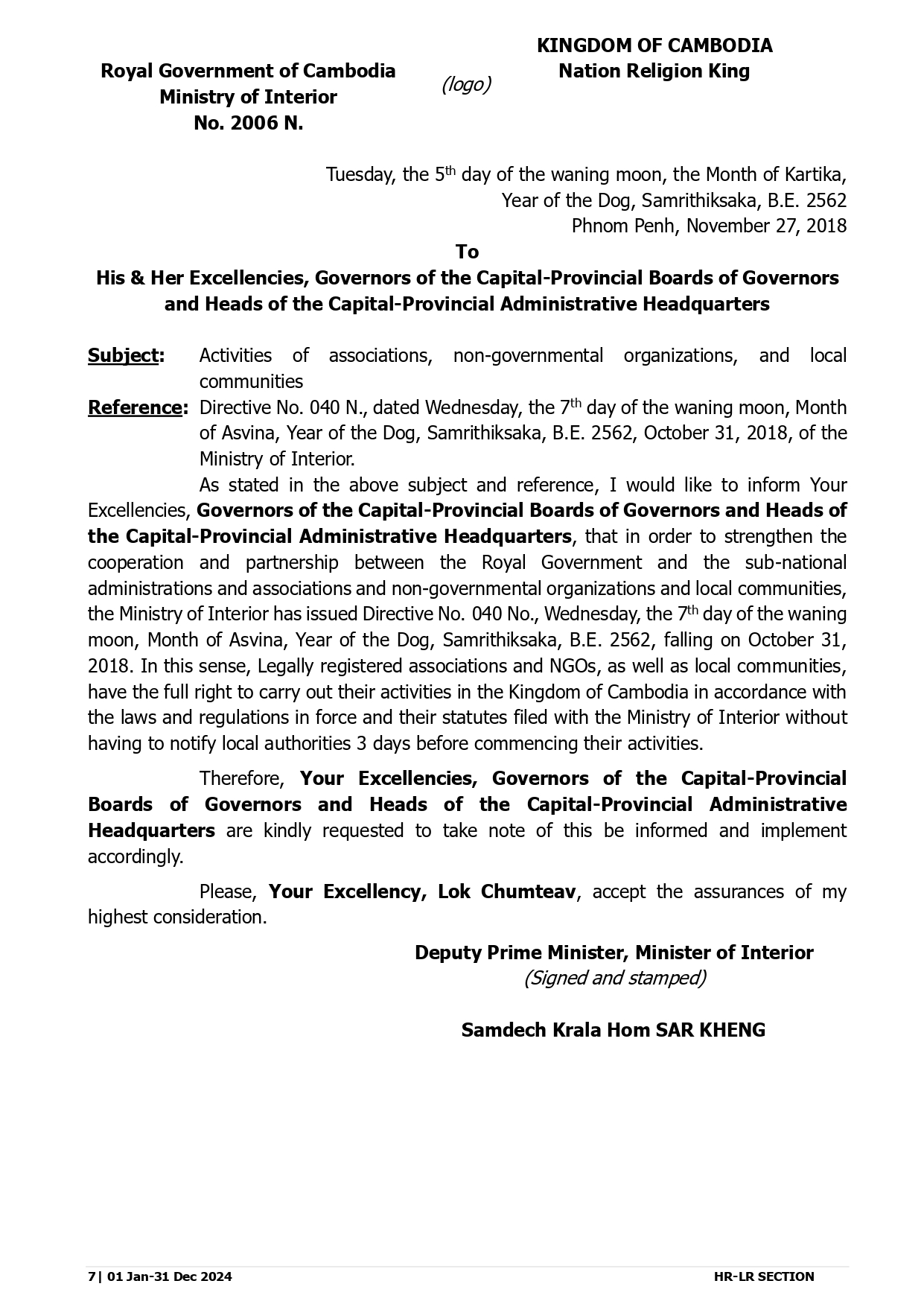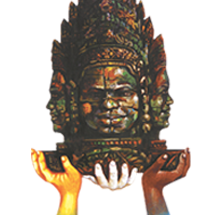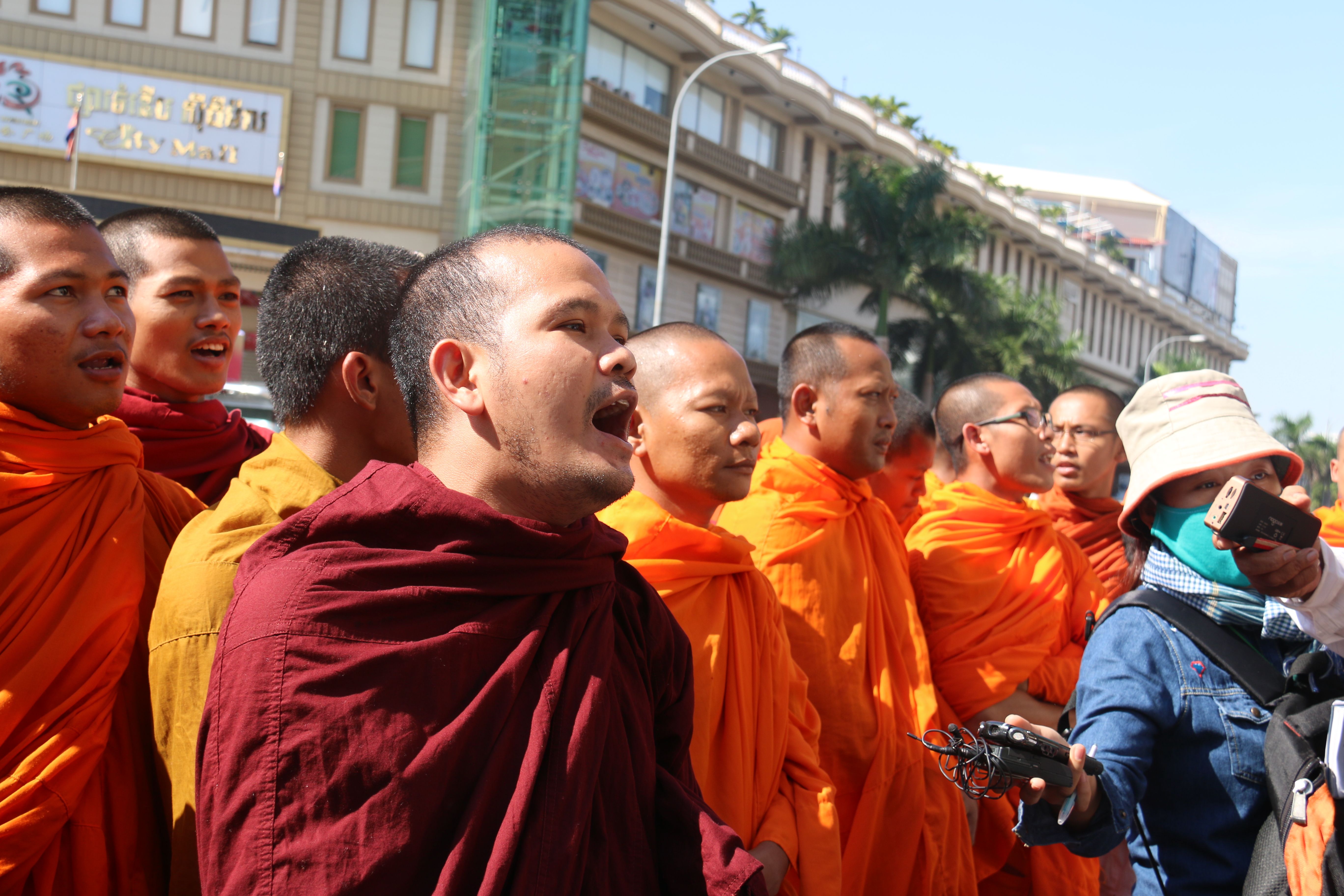“Some local authorities violate the national and international laws on the rights to freedom of expression through peaceful assembly, especially in regard to Notification No. 2006, dated November 27, 2018, Ministry of Interior.”
1.Introduction
ADHOC is the leading Cambodian human rights association and the first human rights organization established in Cambodia on December 10, 1991, with the mission of advocating for the promotion of human rights and democracy, and it was officially recognized by King Norodom Sihanouk on March 10, 1992, and registered with the Ministry of Interior on March 28, 2000, under Prakas No. 278. ADHOC has been carrying out three main activities: community empowerment, advocacy and monitoring, and relevant interventions against human rights violations.
2.Report Scope:
More than 556 awareness-raising activities conducted annually by ADHOC for local community people, human rights defenders, and community representatives. These activities include training, capacity-building courses, workshops, dialogues, meetings, youth forums, and outreach activities. This report only includes the 311 outreach activities on “Democracy, Civil and Political Rights”, conducted from January 01 to December 31, 2024, across local communities in 296 villages, 111 communes, and 66 districts of 22 provinces. These activities engaged a total of 8,990 participants, including 5,638 women, 1,592 youth and 800 indigenous peoples. The 311 outreach activities engaged 8,990 local people, enabling them to clearly understand and share the information with their families, friends, and community members about the local authorities’ violation of the national and international laws on “freedom of expression through peaceful assembly”, specifically Notification No. 2006, dated November 27, 2018, Ministry of Interior.
3.Applicable National/International Laws
National Law:
- Constitution of the Kingdom of Cambodia, 1993, Article 41: Khmer citizens shall have freedom of expression, press, publication and assembly.
- Directive No. 2006, dated November 27, 2018, of the Ministry of Interior on the activities of associations, NGOs, and local communities without prior notice to authorities. (attached on page 6)
International law:
- Universal Declaration on Human Rights, approved on December 10, 1948
Article 19 Everyone has the right to freedom of opinion and expression; this right includes freedom to hold opinions without
interference and to seek, receive, and impart information and ideas through any media and regardless of frontiers.
Article 20 (Paragraph 1) Everyone has the right to freedom of peaceful assembly and association.
- International Covenant on Civil and Political Rights, ratified October 2009, Article 19 (Paragraph 2). Everyone shall have the right to freedom of expression; this right shall include freedom to seek, receive, and impart information and ideas of all kinds, regardless of frontiers, either orally, in writing or in print, in the form of art, or through any other media of his choice.
Article 21 The right of peaceful assembly shall be recognized. No restrictions may be placed on the exercise of this right other than
those imposed in conformity with the law and which are necessary in a democratic society in the interests of national security or
public safety, public order, the protection of public health or morals, or the protection of the rights and freedoms of others.
- Sustainable Development Goals 2030: Goal 10 ensure public access to information and protect fundamental freedoms, in accordance with national legislation and international agreements.
4.Restrictions – Violations of Freedom of Expression Through Peaceful Assembly:
| Activities can be deemed a restriction – a violation of fundamental freedoms(Fundamental freedoms include: freedom of expression, freedom of peaceful assembly, and freedom of association) |
| 1. The police or other people conduct regular surveillance on any person or group;2. Authorities block or barricade roads to stop one or more people from participating in protests or participating in other peaceful events.
3. The authorities require permission or notification when organizing a gathering, such as meetings, outreach, training, workshops… etc.4. The authorities demand the cancellation or modification of activities or prohibit the venue owner from renting or providing the space.5. The risk of retaliation or threats after sharing information or posting information on social media.6. The authorities come to the venue to monitor or take photos or record information or check documents or request or force the cessation of activities.7. The authorities go from house to house to record the names of people after they return from participating in gatherings.8. The authorities use violence or arrest to stop a gathering.9. The authorities request a report without a valid reason.(Source: ADHOC – Training Course Materials) |
Forms of the local authorities’ restriction/violation on the freedom of expression through peaceful assembly in community outreach in 2024 include:
More than 90% of outreach activities of “Democracy, Civil and Political Rights” that were disseminated to 311 people in local communities in 296 villages, 111 communes, and 66 districts of 22 provinces in 2024 were restricted by the local authorities in violation of national and international laws, especially the violation of the Ministry of Interior’s Notification No. 2006, dated November 27, 2018 – such as:
1. Kampong Chhnang Province: The Village-Commune Authorities of Baribo district were unhappy with the outreach activities and attempted to stop the people from participating in them.
2. Pursat Province: The Village Chief of Krakor and Veal Veng district questioned whether the outreach activities had been granted permission from the commune-district? The Village Chief, commune members, and the community security guards came in during the outreach activities with some of them noting things down and others taking pictures.
3. Battambang Province: Ek Phnom district did not allow community outreach. In Maung Russey district, the authorities, village chief, and community security guards participated in the outreach activities and took photos of participants.
4. Kandal Province: The village and commune authorities of Kandal Stoeung district, Khsach Kandal district, Ponhea Leu district, Arey Khsat city, were unhappy with the outreach activities. The village chief, vice chief, and community security, and the police were always present to listen to the outreach, take pictures, record attendance, and ask if the outreach activities were permitted.
5. Kampong Speu Province: The commune-village authorities of Oral district were always disruptive and present from the beginning of the outreach until the end.
6. Kratie Province: The village-commune authorities of Chet Borey and Prek Prasap districts monitored the outreach activities and participate in them. The village-commune chiefs required prior authorization (or a notification letter) before the outreach activities.
7. Kampong Thom Province: The authorities, village chiefs, and community security guards of Trapaing Russey, Damrey Slap, Kampong Svay communes, Kampong Svay district, participated in the outreach activities and took photos of the attendee list, and also photographed the participants.
8. Ratanakiri Province: The village-commune authorities of Oyadav district, Attended, participated in the outreach activities, and took photos of the attendee list, and also photographed the participants.
9. Pailin Province: The village-commune authorities of Sala Krao district participated in the outreach activities, and took photos of the attendee list, and also photographed the participants. Some village chiefs did not allow any outreach activities.
10. Thboung Khmum Province: The people in the community of Dambe and Memot districts felt intimidated as the village-commune authorities and police were present to monitor, question, take photos, and film the participants’ activities.
11. Prey Veng Province: The village-commune authorities of Ba Phnom and Pearang districts participated in the outreach activities until the end and took photos of the participants.
12. Preah Sihanouk Province: The village-commune authorities of Stoeung Hav and Prey Nop district, participated in the outreach activities until the end and took photos of the participants.
13. Preah Vihear Province: The authorities and police of Kulen and Rovieng district monitored the outreach activities.
14. Banteay Meanchey Province: The police of Svay Chek and Thma Puok districts monitored the outreach activities. The commune chief requested a permission letter from the district-provincial level.
15. Oddar Meanchey Province: The village-commune authorities of Anlung Veng district, Samraong city were unhappy and requested a permission letter for the outreach activities. The police requested each participant’s phone number. The village chief always monitored the outreach activities and took photos of the participants.
16. Stung Treng Province: The commune authorities, village chief and vice chief, and community security guards of Thala Pakrivat district were present during the outreach activities, took photos, and filmed the participants. Some villages forbid the people from participating in outreach activities.
17. Kampot Province: The authorities of Bokor city, Chhouk district were unhappy with the outreach activities, participated in the outreach activities, questioned, took photos, and filmed the participants.
18. Kampong Cham Province: The commune authorities, village chief and community security guards of Batheay district participated in the outreach activities, took photos, and recorded videos. The police monitored the outreach activities and questioned the participants.
19. Mondulkiri Province: The village-commune authorities and police of Koh Nhek and Keo Seima districts monitored and participated in the outreach activities, took photos, took photos of the attendance lists, and requested a permission letter from the district-province.
20. Koh Kong Province: The village-commune authorities of Botum Sakor district, monitored and participated in the outreach activities.
21. Siem Reap: The commune authorities and police of Varin, Svay Leu, and Sotnikum districts questioned and took photos of the participants. After the outreach activities were completed, the village chief went to the participants’ houses and threatened them regarding their past involvement in the activities.
22. Svay Rieng Province: The police of Romeas Hek and Svay Chrum districts monitored the outreach activities. Drunk community security guards disrupted the outreach activities. After the outreach activities were completed, the village chief went to the participants’ houses and threatened them regarding their past involvement in the activities.
5. Conclusion:
In 2024, over 90% of the local community authorities[1] in 296 villages, 111 communes, and 66 districts of 22 target provinces restricted the rights to freedom of expression through peaceful assembly which is a violation of both national-international laws in force, especially in regards to the Notification of the Ministry of Interior No. 2006, dated November 27, 2018, in the following forms: Local authorities requested permission letter, prohibited the outreach activities, village chiefs required prior notice before the outreach activities, took photos – videos, and requested the participant list, monitor the outreach activities site, ask for the participant’s phone number at the end of the outreach activities, village chief went to the participants’ house to question and intimidate regarding their past involvement in the outreach activities; drunk community security guards disrupted the outreach activities, participated in the outreach activities and recorded information, prohibited citizens from participating in the outreach activities.
6. Recommendations: In 2025, the Ministry of Interior should take action by introducing and disseminating Notification No. 2006, dated November 27, 2018, and imposing severe administrative fines on any local authorities that violate the national and international laws, especially Notification No. 2006, which constitutes a serious violation of the freedom of expression through peaceful assembly in the local communities.
[1] District Council, Commune Council, Police, Village Chief, Village Vice Chief, Community Security Guards

ទាញយករបាយការណ៍សេរីភាពបញ្ចេញមតិតាមរយៈការជួបជុំដោយសន្តិវិធីផ្តុយច្បាប់



